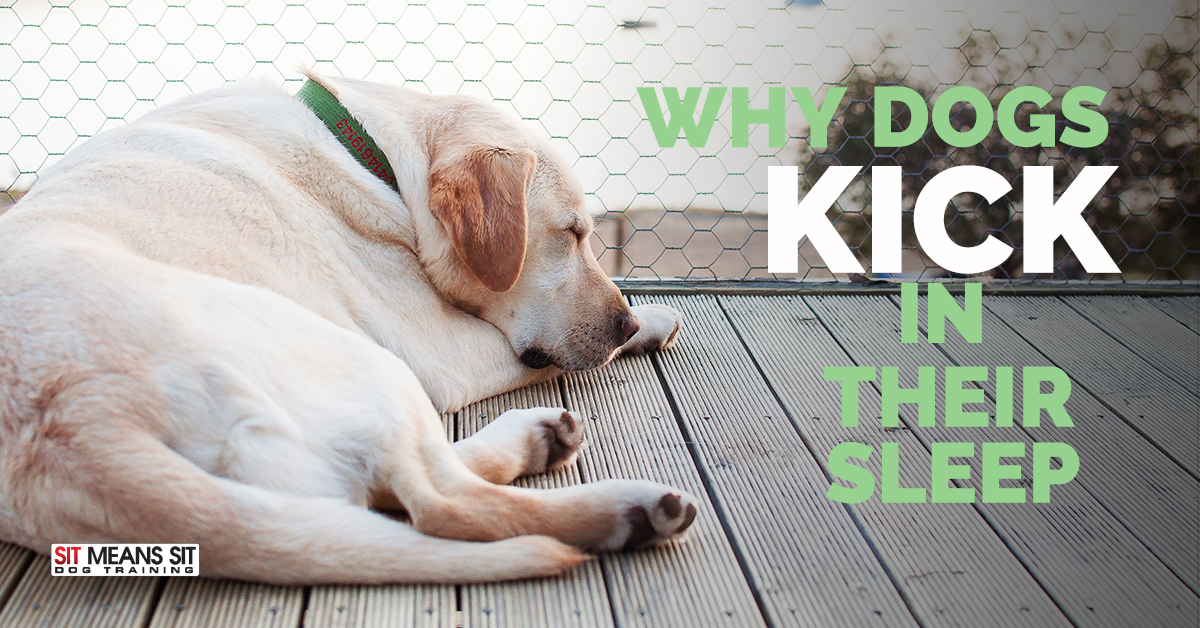
Why Dogs Kick in Their Sleep
As a pet parent, we’ve all been there: you’re admiring your adorable snoozing pup when all of a sudden they start twitching, moving, kicking, or even downright running in place. You check to see if they’re awake only to discover their puppy dog eyes still closed. Why does your dog do this, and should you be concerned? Let’s find out!
The 3 Stages of Sleep
There are three different stages of sleep your dog will go through:
- NREM – which stands for non-rapid eye movement. This is a dreamless type of rest where the breathing and heart rate are slow and regular. About 80% of sleep is in the NREM stage.
- REM – stands for rapid eye movement. This stage is where dreaming usually occurs. Heart rate and breathing become irregular, and involuntary muscle jerking usually occurs.
- SWS – stands for short-wave sleep. This is the deepest type of sleep where dreaming can also occur, and in humans sleepwalking as well! Your dog will typically breathe heavily during this stage.
The REM or Dreaming Stage
Just like we do & mentioned above, dogs experience dreaming. Animal experts theorize that during REM sleep, your furry friend may act on their dreams by twitching or rapidly moving in correlation with their dream. So if your pooch is dreaming of chasing a squirrel, it shouldn’t come as much of a surprise that their legs may start to move in a running-like motion.
Dogs who sleep tightly curled up tend to keep their muscles tensed while sleeping, and are therefore less likely to twitch in their sleep compared to dogs who sprawl and stretch out on the floor. Senior dogs and puppies are also more likely to move in their sleep than the average adult dog would be. This may be because they sleep more often and therefore experience REM sleep more.
How to React to Your Dog’s Bizare Sleepy Movements
This is obviously not a life-threatening condition and should not raise too many concerns. If your dog seems to be twitching in a scared manner or so aggressively you fear they may hurt themselves by knocking into something around them – gently call out their name to wake them up.
What you don’t want to do is try to shake or use your hands to wake your canine, because they may wake up disoriented and harm you unintentionally. Some dogs also experience nightmares and may wakeup in a frightened state. If your furry friend seems anxious, coax them with a reassuring voice and shower them with love if they approach you.
Other Possible Reasons to Consider
If there is a dip in the temperature, that may also be the reason behind your dog’s frantic movements. In an effort to stay warm, your pooch’s body may start to twitch a bit abnormally. If this seems to be the case, consider turning up the heat, providing your pup with a blanket, or even investing in a doggy heating pad.
It’s essential to know the difference between simple twitches in your dog’s dreamland sleep and serious seizures. During a seizure, your pup’s body will stiffen up, tremble heavily, and may even lock up. You also won’t be able to wake your dog by simply calling their name. Most of the time, your sleepy pup is probably just chasing an abundance of rabbits in their dreams, but it’s still important to know the signs of a seizure just to be safe.
